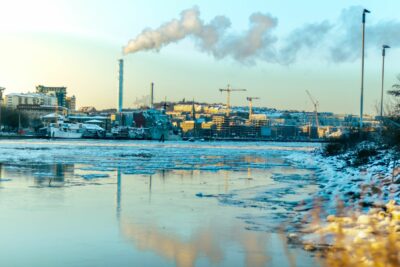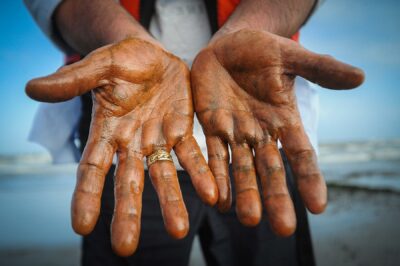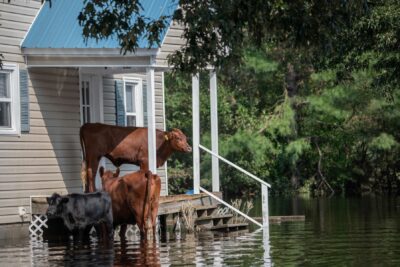Water is the one of the most precious elements on our planet and without it, life on Earth would not exist as it does. Yet we have allowed industries like animal agriculture to knowingly pollute our oceans and rivers and as a result, ecosystems, animals, and humans, suffer greatly.
What Is Water Pollution?
Water pollution is the contamination of a water source, most often as a result of industrial activity. Pollution and its knock-on effects, reduce the oxygen levels of water, a process known as ‘eutrophication.’ Eutrophication is devastating for aquatic life and almost always results in the emergence of dead rivers and ocean dead zones, where very little aquatic life can exist. This is already happening to some of our most diverse and precious marine areas, rivers, and lakes, as a direct result of water pollution.
Rivers, lakes, reservoirs, and oceans are contaminated by industries such as animal agriculture, textiles, fossil fuel extraction, and transport, which will, often knowingly, use polluting chemicals in their work and allow contaminated waste water to run off into surrounding water sources.
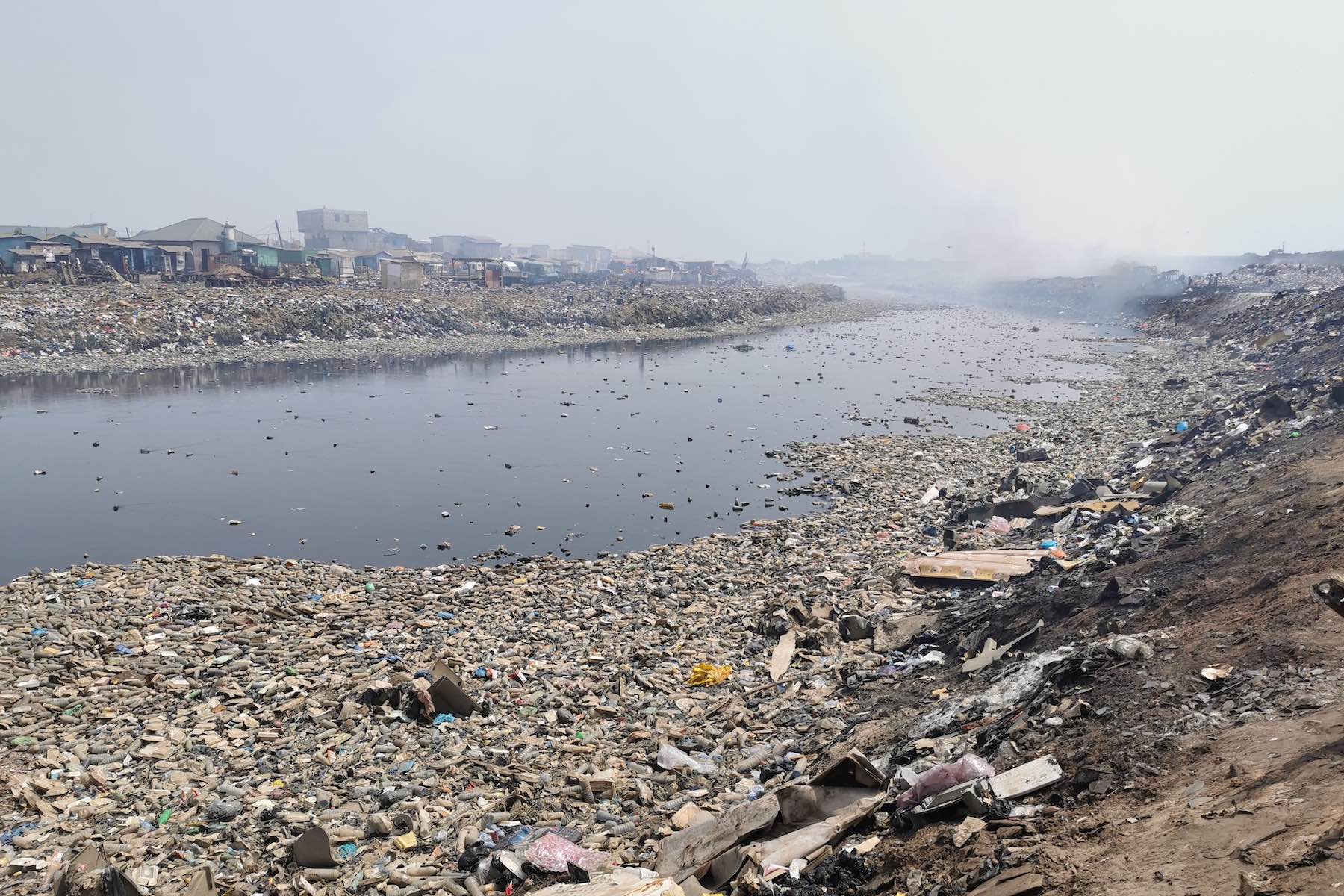
What Are The Causes Of Water Pollution?
Various activities and industries contribute to water pollution, some much more than others.
Animal Agriculture
Animal agriculture is one of the most environmentally damaging industries on the planet including when it comes to water pollution.
Factory farms house tens of thousands of animals in criminally small spaces, which creates an unnatural amount of waste. This ammonia- and nitrogen-rich waste is stored in huge silos, which regularly spill over and leach into surrounding waterways. North Carolina, home to the highest concentration of hog farms in the US, is one of many examples of this. The water quality here is one of the worst in the country and major fish kills, algal blooms, and public health issues are all too common.
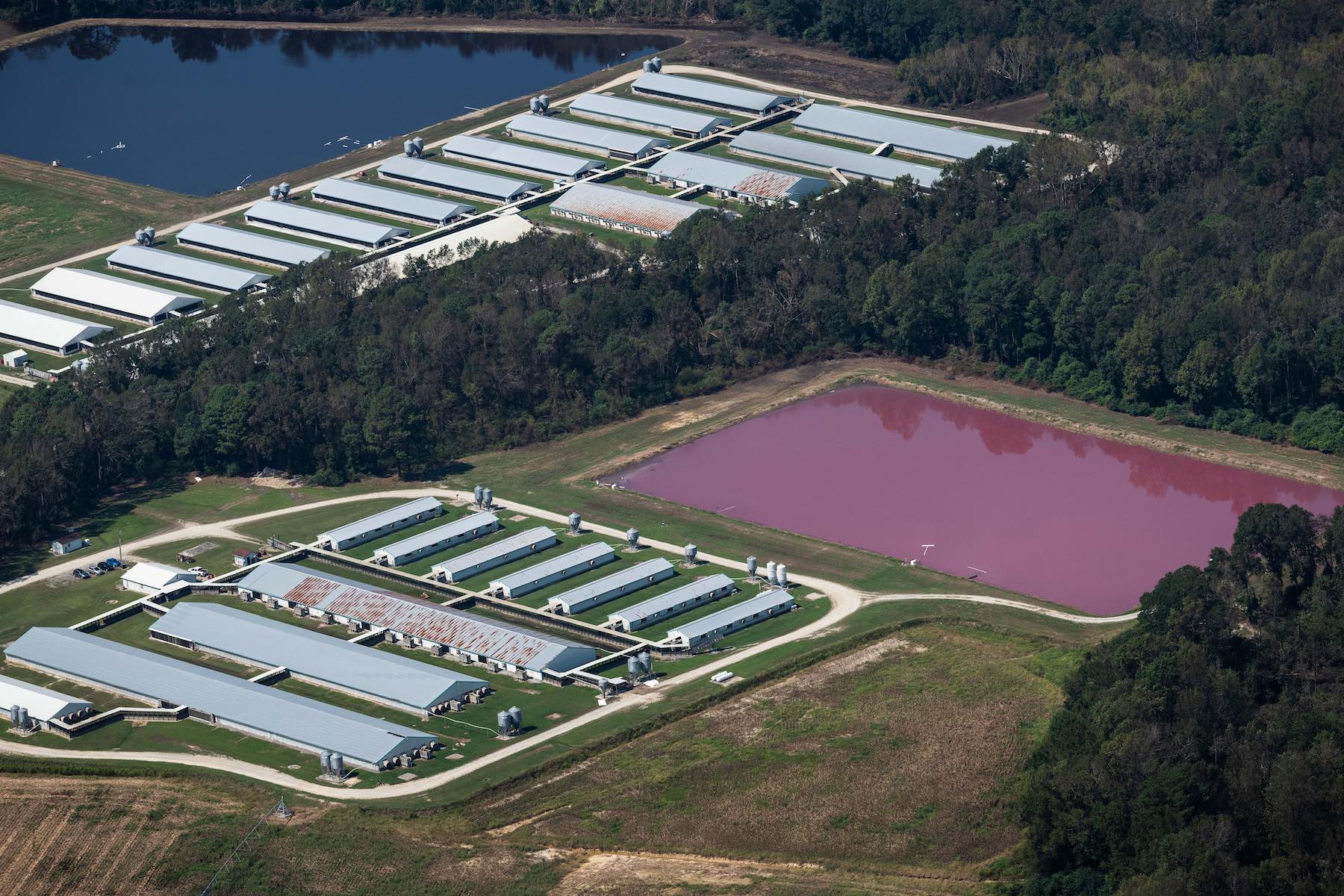
There are countless examples like North Carolina, where factory farms pollute their surrounding environment. Intensified animal farming in the UK has led to a deadly chemical cocktail of pathogens, fecal matter, nitrates, phosphates, and veterinary medicines, entering rivers on a regular basis. Chicken farms in the Philippines, which slaughter 24 million chickens a year, release wastewater directly into Manila bay, which was declared biologically dead in 1989 as a result.
Unfortunately, the list goes on and on.
Leather
Every year, millions of cows are killed for their skins and the process of tanning these into leather products leaches toxic chemicals into water; destroying ecosystems, local industries, and risking public health. In India, the leather industry has polluted huge areas, leaving fresh water undrinkable, the horticulture industry destroyed, and fruit and vegetables inedible.
Much of the leather we buy in the US and UK comes from tanneries in countries like India, where the poorest suffer as a result of our purchases. Only when consumers choose not to buy leather products, can we begin to decrease the impact of this toxic industry.
Deforestation
When we remove trees from naturally forested land and turn it into animal farms, we reduce the land’s ability to hold water and preserve topsoil. This increases flooding and run-off from agricultural fields, into rivers and oceans, which means more pesticides and animal waste will reach our water sources.
Research in Malawi shows that a 14 percent increase in deforestation over the last 10 years has resulted in an equivalent rainfall reduction of 9 percent. This decreases the availability of safe, clean drinking water for both humans and animals.
The same is happening in precious, vulnerable places all over the world, including the Amazon rainforest.
Fuel Spillages
Oil spills are devastating to local water quality and wildlife, and could be avoided if we turned to renewable energy sources. Oil spills pollute waters and kill surface-dwelling animals and birds who are poisoned or suffocate in the oil. The polluted waters also poison food sources for animals who suffer over time as a result. Oil spills often result in biological dead zones, if major clean-up operations are not undertaken.
The transportation of oil, which risks spills, only exists due to our addiction to fossil fuels. If we transitioned to renewable sources of energy, the risk of oil spills would reduce.
Global Warming
One of the most concerning impacts of global heating is ocean acidification. When our oceans warm by even 1-2 degrees celsius, the oxygen content reduces, which hugely decreases the oceans’ ability to cope with pollution. Warming also results in coral bleaching, which can happen extremely quickly, resulting in huge numbers of fish species dying in a short period of time, causing increased water pollution.
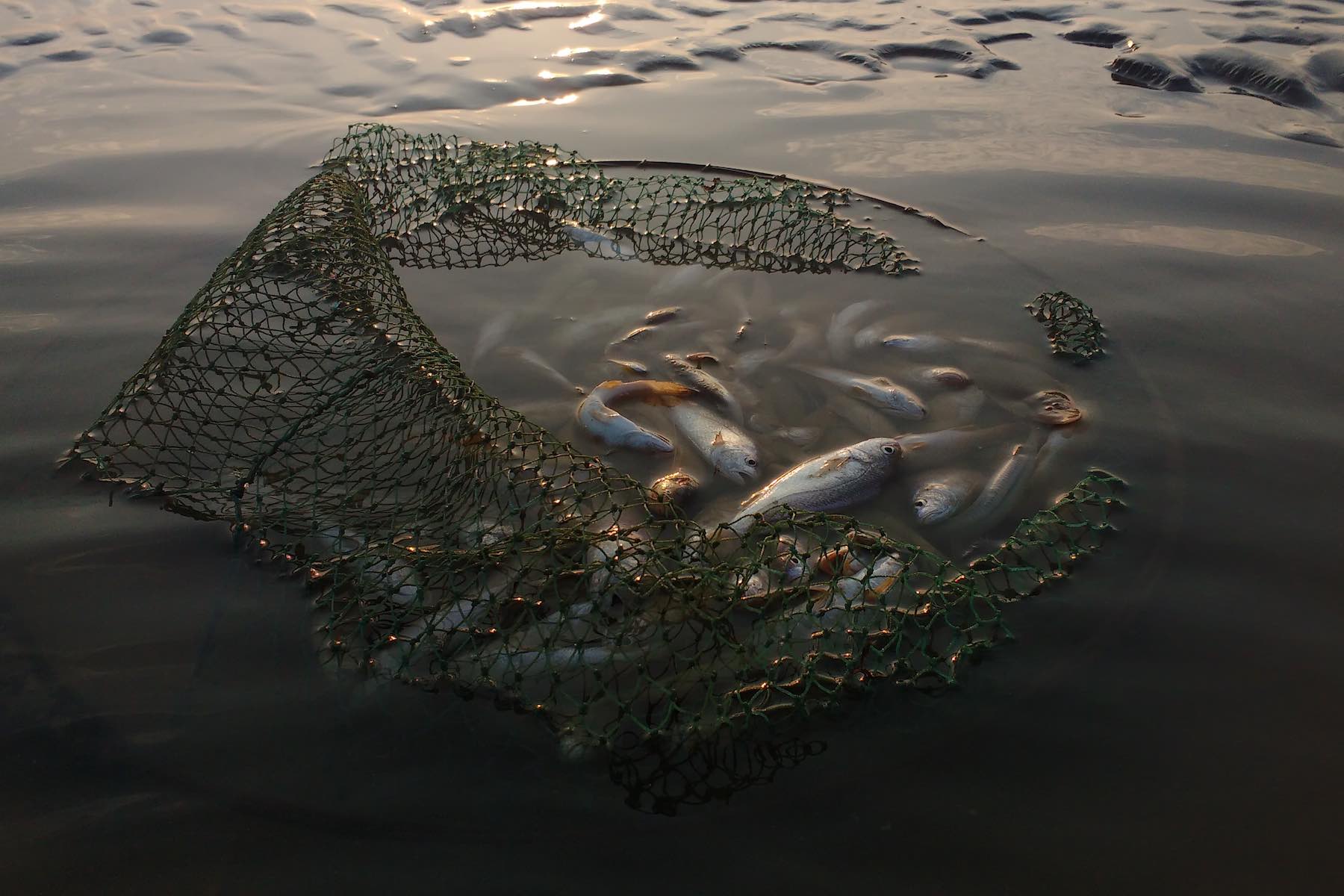
Plastic Waste
Plastic in our oceans and waterways is a well-known issue. However, the true source of major plastic pollution in our oceans is not plastic bottles, straws, or any other single-use item, it is fishing equipment.
At least 50 percent of the plastic pollution in the Great Pacific Garbage Patch is fishing nets and other industry gear. Fishing nets and lines are carelessly discarded into the ocean by fishing vessels, causing unimaginable damage to ocean life. Many experts estimate there will be more plastic pollution than aquatic life in our oceans within a few decades.
Waste and Fecal Water Dumping
A lack of sufficient waste collection and storage facilities in many parts of the world — including all around the UK — has led to garbage and fecal matter entering waterways. This drives algal blooms which kill wildlife and can be toxic to both people and companion animals.
The Burning of Fossil Fuels
The toxic gasses that are emitted when we burn fossil fuels leads to ocean acidification, a devastating form of water pollution which kills aquatic life and destroys aquamarine ecosystems. The acidification can cause coral reefs to die, interrupt food webs, produce toxic algae, and more. The end result, if left unchecked, is almost always ocean dead zones.
If we continue to burn fossil fuels, we will create more ocean dead zones which is not only a tragic loss of biodiversity but a huge risk to human life as well.
Shipping Traffic
Our globalized world requires goods to be shipped all over the planet and maritime traffic burns huge amounts of fuel, polluting air and water in the same way cars and airplanes do on land.
Cruise ships also produce huge amounts of gray water waste, from cooking, cleaning and washing clothes, a lot of which enters the ocean, sometimes illegally.
Are There Natural Causes of Water Pollution?
Climatic changes can cause water pollution as a part of the Earth’s natural cycles, but the majority of climatic changes are caused by unnaturally high carbon emissions from human activity, so cannot be regarded as natural.
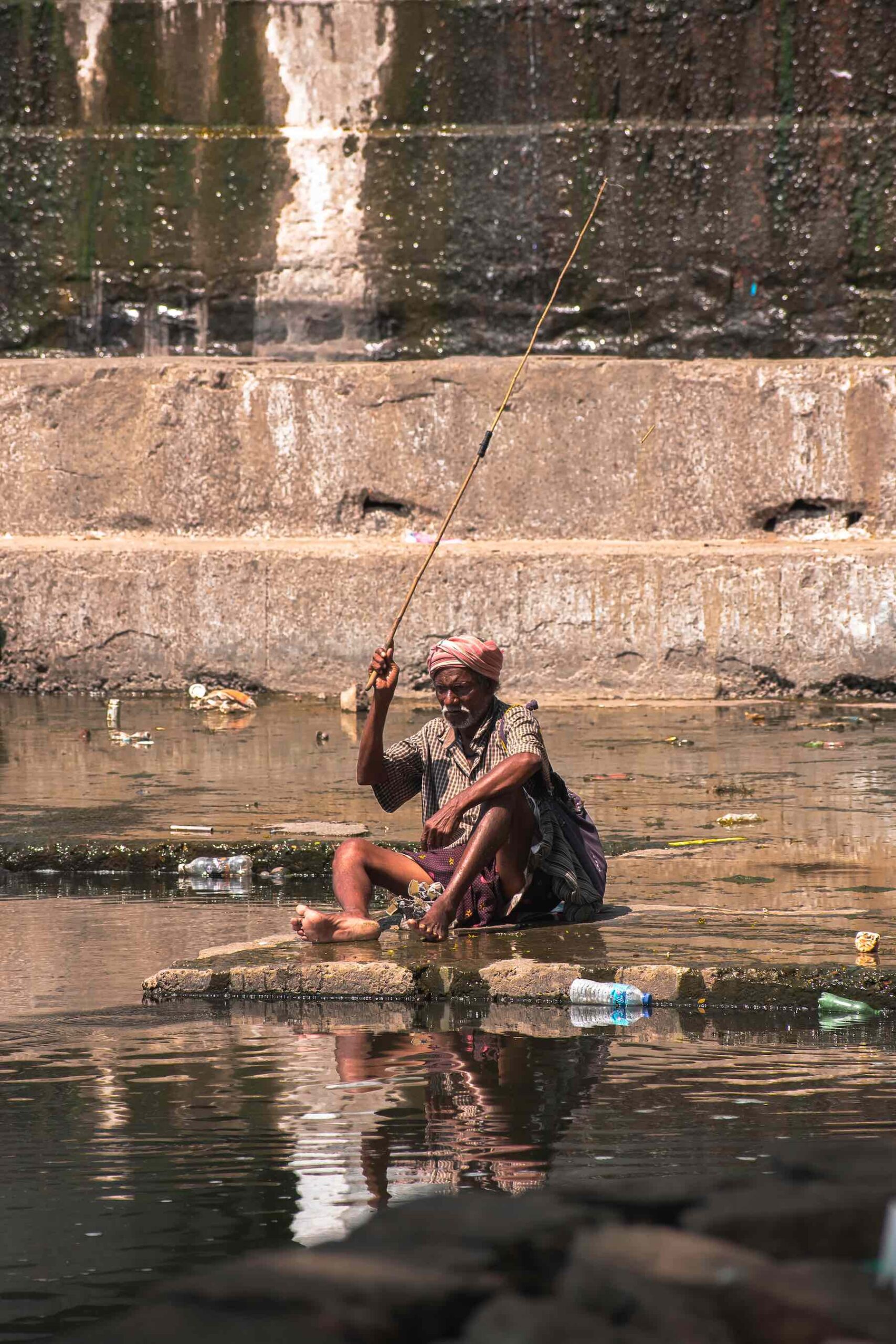
What Are the Effects of Water Pollution?
The knock-on effects of water pollution, particularly in our oceans, are highly concerning for all life on our planet, including humans.
Interruption of Food Webs
Ocean acidification, oil spills, farmed animal slurry and run-off, and industry-related pollution, all result in eutrophication of water, which kills marine life, interrupting natural food webs.
Any interruption to any stage of a food web can result in catastrophic ecosystem collapse, where all marine life dies and we are left with biologically dead zones, occupied only by green algae or dominated by single species.
Biodiversity Loss
Marine biodiversity is incredibly complex and diverse, yet it is fragile, so when we pollute our waterways and starve our oceans of oxygen, we have a devastating impact on marine life.
Huge areas of coastal oceans are being declared as ‘biologically dead’, due to industries like animal farming allowing toxin-rich manure and fertilizer to run straight into the sea. The Gulf of Mexico, a once extremely biodiverse area, now has a dead zone spanning at least 8,000 square miles due to run-off from animal farming companies like Tyson Foods, the US’ largest meat producer.
Environmental Racism
Industries like animal agriculture are environmentally racist, which means their polluting factory farms are more often located in poorer minority communities. This means those communities are left with poorer water quality and higher likelihood of health risks from the toxic water and air as a result.
Infant Mortality and Disease
Water pollution results in less clean and safe drinking water for people and the effect of this is felt most in areas of increased poverty. Water pollution raises the risk of water-borne diseases and puts young children at risk of death. Improved access to clean water and sanitation is proven to have a positive effect on infant mortality risk and incidence of disease.
Yet, industries like animal agriculture continue to waste massive amounts of water to produce their inefficient meat and dairy products, as well as target the poorest areas for their polluting factory operations. This means the poorest people may be left with limited access to safe drinking water, and the natural waterways available to them are too polluted to drink. As a result, they are more vulnerable to disease and infant mortality is raised.
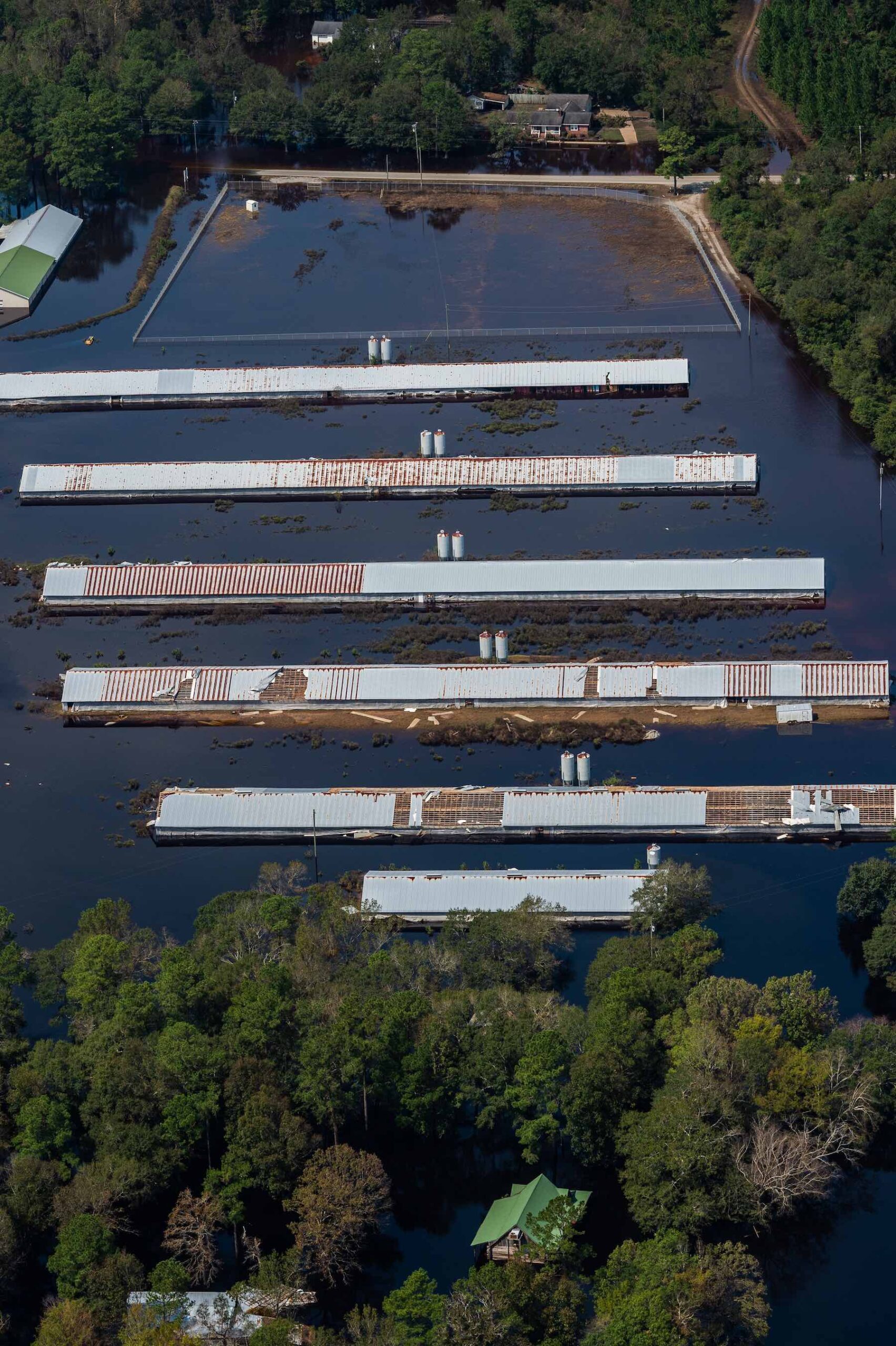
Prevention of Water Pollution
In order to prevent water pollution, major polluters must be held properly accountable for their impact. As consumers, we can do this by avoiding their products altogether, and some of the biggest impacts we can have come from cutting meat and dairy from our diets and avoiding leather clothing. We can also campaign against factory farming in our local area to protect our waterways.
Responsibly disposing of our waste by properly recycling can also make a difference to plastic pollution, but the real change comes from our consumer choices. If we can, buying biodegradable products instead of single-use plastics will help avoid plastic waste reaching our oceans and rivers.
Conclusion
Industries like animal agriculture are polluting waterways and oceans all over our planet and as a result create ocean dead zones, strip biodiversity from precious ecosystems, and put local communities at risk.
By avoiding all animal products, we can make a significant contribution to better water quality all over the world.
If you want to do your part in protecting our rivers and oceans, try going vegan for the planet today.
